Global Lens Reflections on life, the universe, and everything
Hugo Chavez
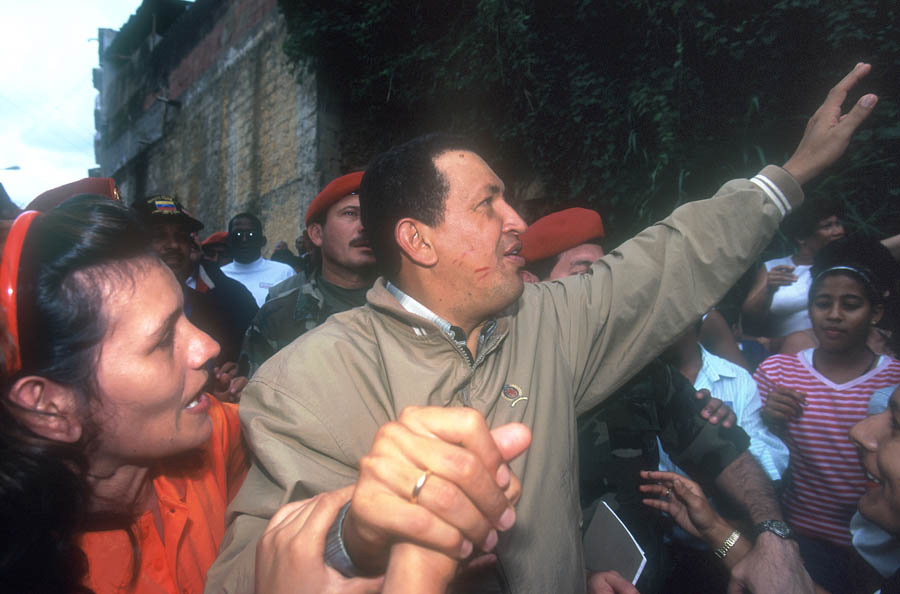
I met Venezuelan President Hugo Chavez in January 2000 in the aftermath of horrible mudslides that ravaged the steep hillsides of Caracas and the country’s northern coast. I covered the response to the disaster, and spent part of my time in a steep ravine where the Catuche River flows into the center of the capital. Over the previous four decades, families migrating from the impoverished countryside had built shacks there. Hundreds of houses were built right up to the edge of the river, and in some cases directly on top of the river, leaving just a small tunnel underneath for passage of the water. Many houses dumped raw sewage directly into the river, which was just a small trickle most of the year, and the ravine became an unsightly and unhealthy place. Engineers warned that serious floods would violently rip through houses in the ravine.
Things began to change along the Catuche in the early 1990s when Jesuit Father Jose Virtuoso pushed Jesuit philosophy students living in the neighborhood out of their seminary to work with residents to clean up the ravine. What the seminarians started soon blossomed into a neighborhood-wide organization that brought together church groups, city government, local builders and international funders in a partnership designed to improve the quality of life along the Catuche. Sewage pipes were installed and families slowly began to be relocated out of the ravine, some into two church-sponsored apartment complexes overlooking the river. Residents dreamed of a river where fish, frogs and birds might one day return.
As organization brought change along the river, residents utilized the same structures to resolve other neighborhood crises. When teenage gangs sprang up on the streets of Catuche, community leaders negotiated a truce, declaring parts of the neighborhood as drug-free zones and prohibiting thefts within the neighborhood. Gang members got jobs in neighborhood construction projects, “wearing them out so much in the daytime that they had no energy left to make trouble at night,” Lisbeth Mora told me. She was the coordinator of social ministries along the ravine for the local Catholic parish.
Then came the flooding of December 1999, and, literally within minutes, hundreds of families along the ravine lost their homes. Yet the community’s extraordinary organization–what we today call Disaster Risk Reduction–meant neighbors communicated and cooperated as the waters rose. Perhaps as few as 15 people died in Catuche, a small number compared to similar neighborhoods nearby where hundreds lost their lives. Estimates for the death toll nationwide ranged from 15,000 to 50,000.
President Chavez visited Catuche on January 23, 2000, in part to highlight the value of social organization in mitigating the effects of disasters. “Count on us, father,” Chavez declared as he embraced Virtuoso in front of a cheering crowd. “We’re going to work with you in this project, with the help of God and this united people.”
At a neighborhood center run by Fe y Alegria, a Venezuelan Catholic service organization, the president studied maps of the ravine with project officials. “We should send people from here to other places where people are just laying in hammocks, being lazy, waiting for someone else to solve their problems,” Chavez told them. “This is a project that should be multiplied.”
Catuche’s experience was unfortunately exceptional. Few such grassroots organizations had developed in Venezuela, in part because of the country’s legacy of clientalism and a citizenry grown accustomed to political bosses providing favors to win votes. Four decades of such democratic but paternalistic rule, fueled by petroleum revenues, had left many Venezuelans dependent on the government to solve their problems, a role Chavez was often more than willing to fulfil.
Chavez spent two hours in Catuche, walking through the devastated ravine where hundreds of houses were wiped away by an unstoppable torrent of water, mud, rocks, and tree trunks. I hung close by, and interviewed him briefly. He was cheered by many along the way, and his face, as you can see in the photo, bore lipstick from the kisses of admiring women. Chavez was intensely popular among the poor. Yet not all were uncritical of the president. One man openly admonished the him for the tardiness of the government’s response. Chavez listened to him and said he’d look into the complaint. But as Chavez turned away to continue the tour, one of the military officers accompanying him motioned to another man to follow the questioner, who had quickly disappeared into the rubble. That guy moved off in pursuit. A few minutes later he was back, and I moved in to hear him report that he hadn’t been able to find the questioner. At that point I interrupted, introduced myself as a journalist, and asked the officer why he’d sent the other guy off after the questioner. A bit flustered, he finally said, “He had some erroneous understandings of the situation here, and we just wanted to make sure he understood things correctly.” Right.
Love him or hate him, Chavez was a larger than life character. In addressing the crowd, he mixed baseball analogies, stories his grandmother had told him, Venezuelan folk songs, and sharp political analysis into a populist stew that the crowd loved. And beyond the borders of Venezuela, Chavez certainly had a big impact on Latin American politics. He brought Simon Bolivar’s dream of a unified Latin America back to the forefront of political discussion with his common economic pact among several nations. He used the country’s wealth to benefit the poor, for which the political right in the US berated him for “buying” support from the poor. Yet his real sin wasn’t using resources to curry favor, it was currying favor from the poor instead of the rich. In a hemisphere still controlled by economic elites, that was an unforgivable act.
Forgive the somewhat faded old photos. They were slides at the time, and have faded over the years. I just happened to have some scans of these on my hard drive, and I’m struggling to upload from a cafe in Liberia with a very slow internet connection.
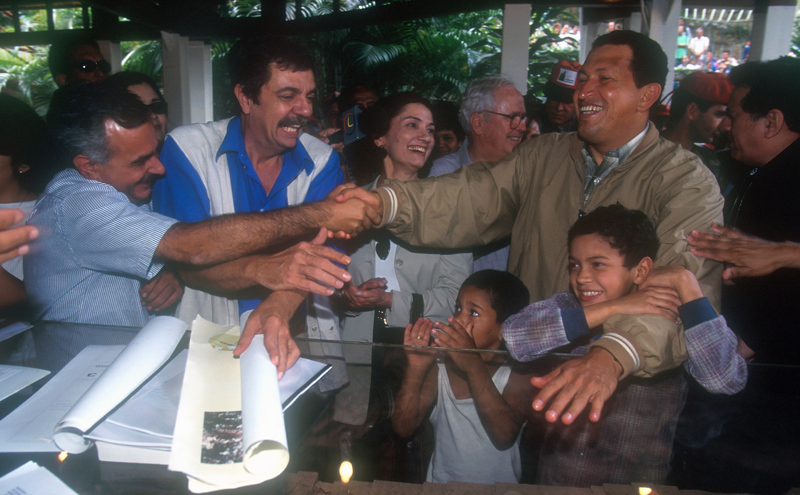
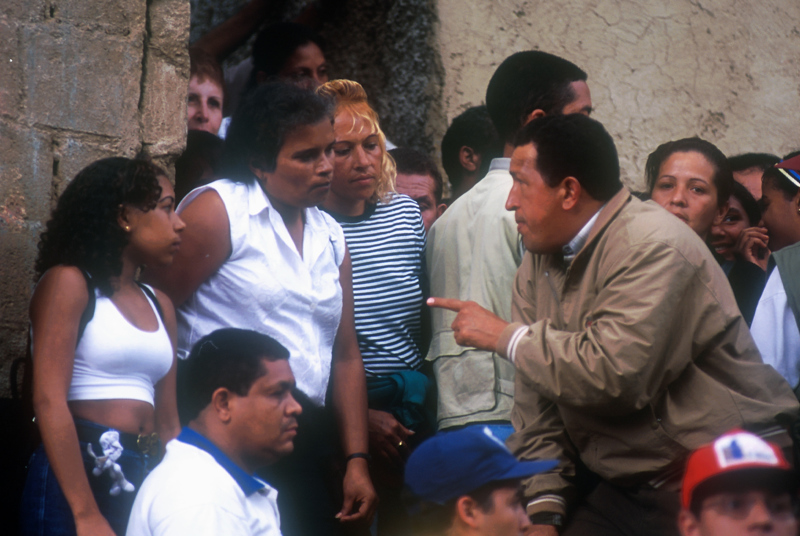
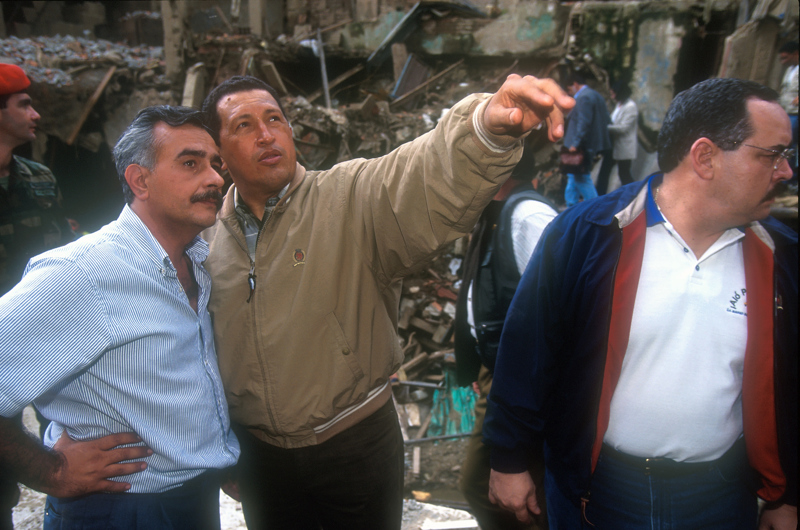
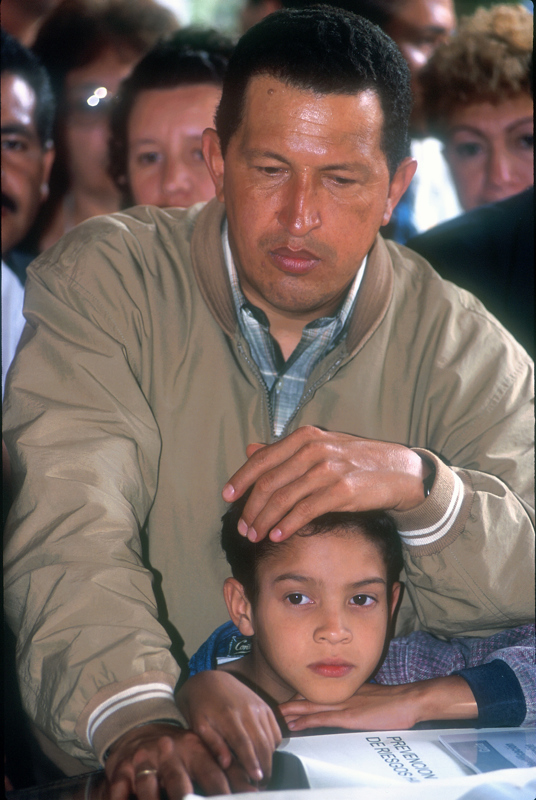
3 Responses to Hugo Chavez